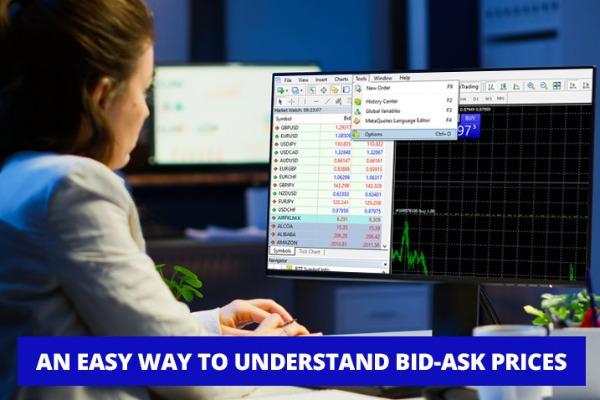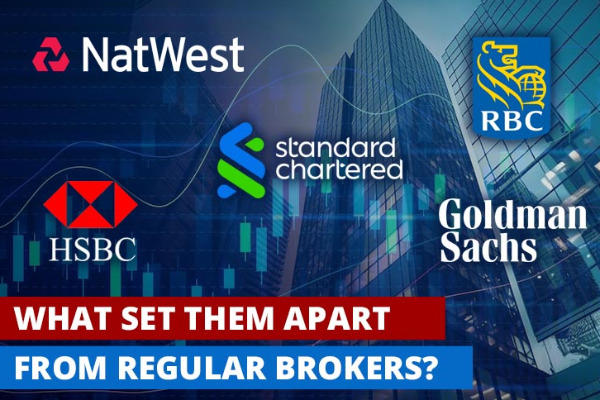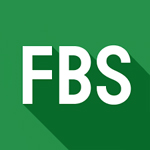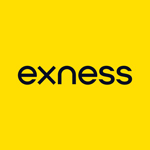Before investing real money in forex trading, traders are advised to open demo accounts. Available for free in most brokers, forex demo accounts possess multiple benefits that help prepare traders to deal with possible challenges in the live markets.
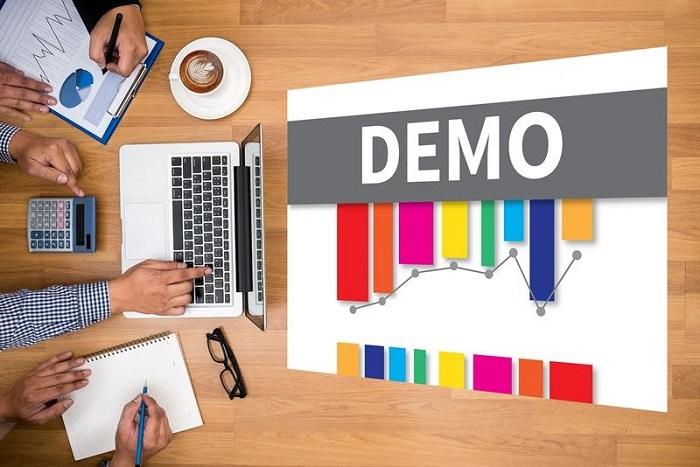
A forex demo account is a practice account on a real trading platform. Traders do not need to deposit their funds as brokers fund demo accounts with virtual money. With demo accounts, traders can practice in the live market environments with real live pricing.
Depending on forex brokers' choices, demo accounts may use proprietary platforms, white-label platforms, or licensed robust platforms such as MetaTrader. Some brokers even go as far as offering market analysis from experts.
Why Do You Need Forex Demo Account?
Traders should dedicate their time to learning from demo accounts which will help them understand forex trading. Through demo accounts, you can learn about the characteristics of market entry and exit and the frequent market changes. You can figure out your goals: how much the investment and how much the expected loss is in case of unfavorable market movements.
You can identify the best time to exit and place stop loss and limit orders. You can also try out alternative currency pairs in your demo trading. The key is to approach things at your own pace until you fully comprehend the active and fast-changing world of forex trading.
Before fully committing your time and money to forex trading, you should be familiar with the ins and outs of the business. This is very important as you don't want to risk losing your investments due to lack of knowledge. Therefore, most brokers will advise you to open a forex demo account, especially if you are a beginner.
The Benefits of Demo Accounts
By opening demo accounts, traders can learn about forex without any financial risk. Demo accounts offer multiple benefits for beginners and the more experienced ones who want to experiment with new trading strategies.
1. Getting Comfortable with the Platform
Brokers offer various platforms, each of which is unique on its own. By using demo accounts, traders will have the time to familiarize themselves with a platform and all of its tools. For example, if you plan on using MT4, you will get the opportunity to understand the types of forex orders and how to place them using the available tools.
Through demo accounts, traders are also given access to market charts, live news feeds, currency quotes, and many more. Traders can assess whether they are comfortable with the platform's extra features. The brokers can also ask the brokers to provide the necessary tools or educational content to understand the platform better.
2. Testing and Retesting Strategies
Since demo accounts do not require real money, traders can test their strategies without any financial consequence before applying them to the live market.
For rookie traders, they can experience first-hand how contract sizes affect their trading or how forex spreads work in real-time when an order is placed. This experience enables them to develop a strategy accordingly.
For experienced traders, demo accounts can be a 'shelter' from the capital risk of implementing new strategies in real account. It also provides them with the chance to enhance their existing strategy or identify its fault especially after a streak of losses.
Many platforms, such as MetaTrader 4 and MetaTrader 5, offer automated trading options like forex robots or algorithmic trading. Still, traders have to get the configuration right through sufficient practice, preferably on demo accounts. With no financial risk, you can be as creative as possible to develop new ideas and methods to maximize profits and minimize losses.
3. Learning about Technical Indicators
Traders need to be adept at the technical indicators of their platform. Demo accounts facilitate traders to learn more about the technical aspects that can make a difference. For example, traders can learn when and where to enter and exit, how the price is affected by support and resistance levels, or what differences candlestick charts and bar charts have.
Studying trend-based indicators is highly encouraged if you aim to be a trend trader since forex trading is full of tools such as Moving Average, MACD, and Bollinger Bands. By practicing efficiently, you can learn which technical indicators are useful for you and which ones can be discarded.
4. Managing Emotions
Profits and losses can lead traders to experience overwhelming emotions which, in turn, might potentially cloud their judgment. Involving emotions in decision-making should be avoided as much as possible.
Demo accounts can help you understand and control these emotions as well as their impacts on trading, even if you do not use real money. You can be more emotionally prepared to deal with the challenges you may face in the live market. By trading on demo accounts, you can identify your strengths and weaknesses to help you define your trading strategies, styles, and routines.
The Downsides of Demo Account
The use of virtual money on demo accounts, while risk-free, also has its downsides. Here are the examples:
- Traders may not be able to learn risk management strategies because there is nothing to risk, to begin with.
- Brokers tend to provide big amounts of virtual money that the demo traders exploit. This could shape up a habit of engaging in risky trading, which will be harmful in the long run.
- In the live market, sensible traders will most likely not risk the same amount of money they use in the demo account. Thus, demo accounts cannot fully replicate the pressure of trading with real money and the feeling of losing it altogether.
- Traders may not acquire money management skills essential to building a stable income.
The downsides of a demo account should be treated as a reminder for you that nothing is perfect. But it is through imperfection that you will learn to prevent future mistakes in the live market.
Choosing a Broker Based on the Demo Account
Learning forex trading is made easier these days. The internet is full of educational content, both free and paid, in various forms such as forex articles, tutorial videos, or webinars. You can start teaching yourself with these resources starting from the very basic. The more knowledge you gain, the more you will get the hang of the business.
Knowledge is power, but remember, experience remains the best teacher. After digesting all the essential information, the next thing you must do is experience the trading itself. Fortunately for you, most forex brokers provide their prospective clients with free demo accounts on their platforms.
You should take advantage of them to the fullest. Placing 50-75 demo trades is highly recommended, so you can gain invaluable experiences before diving into the live market.
Eventually, traders must decide which forex broker to invest their real money in. Each broker has its own offerings and each trader has its own requirements. By opening a demo account, you will know your actual needs and whether the broker fits your needs.
You can also further investigate the reliability and reputation of the brokers you are considering. Below is a list of questions to determine the most suitable broker based on its demo platform:
- How can I place a stop or limit order?
- Can the orders be set automatically or at the time of entry?
- How do the spreads on the platform vary over time?
- What is the typical spread?
- What is the lot size I can trade (0.01, 0.1, or 1 lot)?
- Can I mix and match the lot sizes?
- Is customer service reliable even if my internet connection is down?
Most forex brokers provide demo accounts for free to their clients. The options seem limitless, and choosing a demo account already feels overwhelming. For this reason, financial media outlets compile lists of best forex demo accounts in key categories.
Generally, some of them require a broker to have notable regulatory licenses, a good reputation among clients, long-time experience in the business, and a wide ion of tradable currency pairs.
Below are some forex brokers with the best demo accounts:
- IC Markets: Available in all account types, platforms, and all instruments.
- OANDA: Allows CFD trading account and test trading strategies under real market conditions.
- Exness: Offers vast opportunities for different types of traders.
- XM: Avaliable for all XM Real Account holders.
- Tickmill: Allow traders to try low spreads, fast execution & great trading conditions risk free.
- OctaFX: Allow trader to open as many demo accounts as they want.
- Pepperstone: Provide real market pricing and can be offered with up to 50,000 virtual funds.
- FBS: Available for all account types and instruments.
- eToro: Get a free $100,000 Practice Account upon joining.
Overall, opening demo accounts is the first key step that beginners should take before setting up a real account. You can practice your trading skills without having to worry about financial risks. You can familiarize yourself with the platform, learn about the technical indicators, test or retest trading strategies, and understand the emotions that come into play in forex trading.
You can evaluate and decide which forex broker is the best for you through demo accounts. You need to ensure the broker ticks all the right boxes, so be wise and take your time to learn.
After that, you can start to trade in a demo account and navigate it as a trading simulation.

 Dedicated FREE FOREX VPS
Dedicated FREE FOREX VPS Free FOREX Virtual Private Server
Free FOREX Virtual Private Server MT4 Demo Contest, Get $500
MT4 Demo Contest, Get $500 Sign Up for an Account, Claim 60% Deposit Bonus
Sign Up for an Account, Claim 60% Deposit Bonus Free MT4/MT5 VPS 2024
Free MT4/MT5 VPS 2024 Send E-mail and Get Free Merchandise
Send E-mail and Get Free Merchandise $1K Refer a Friend Bonus for Pepperstone Pro clients
$1K Refer a Friend Bonus for Pepperstone Pro clients Maximize Your Earnings with 100% Deposit bonus
Maximize Your Earnings with 100% Deposit bonus Trade to Win, $5,000 Monthly Demo Contest
Trade to Win, $5,000 Monthly Demo Contest Claim 30% + 15% Deposit Bonus from LiteFinance
Claim 30% + 15% Deposit Bonus from LiteFinance




